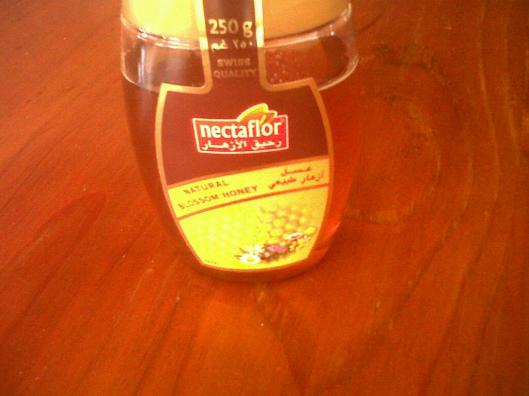Tags
Bee, Botulism, clostridium botulinum, Corn syrup, food, health, honey, honeybee, nature, organic, Pasteurization, pasteurizationn, raw, raw honey, what is pasteurization
 Raw Honey like the photograph above will always crystallize. Raw honey is the only food substance that does not spoil. The heating and filtering processes only make it look clear, and people mistakenly think the clearer the better. In other words it is done for marketing purposes.
Raw Honey like the photograph above will always crystallize. Raw honey is the only food substance that does not spoil. The heating and filtering processes only make it look clear, and people mistakenly think the clearer the better. In other words it is done for marketing purposes.
According to my sources, very young children or those with compromised immune systems should consume only pasteurized honey because there are a small number of cases each year where spores of Clostridium botulinum found in honey have been responsible for botulism poisoning. According to the U.S. National Library of Medicine, approximately 110 cases of botulism poisoning occur each year in the United States, mostly from improperly canned food, corn syrup, and honey. About 90% of these cases occur in children under six months old. There is normally a warning that you should not feed honey to children under 3 years old.
Honey should never be boiled, heated or cooked. It has been found that heated or cooked honey has a deformed molecular structure, and lacking the health benefits of raw honey.

Pasteurization is a process that destroys microorganisms with heat. Different combinations of temperature and time can be used to pasteurize, depending on the substance. Most sources I found recommended heating the honey to 145° F (63° C) for 30 minutes. Some preferred 150° (65.5° C) for 30 minutes. One suggested that the temperature be brought to 170° F (77° C) momentarily. Most of the honey found on supermarket shelves has been pasteurized, unless it has been marked as raw.
Most of the sources I read claimed that honey is pasteurized to “kill bacteria and reduce crystallization.” Now we all know that honey is famed for its antibacterial properties, that it is still used in some areas to dress wounds, and that it can keep for years on end. So why, exactly, do we need to kill bacteria?
Related articles :

Raw!
LikeLike
of course 🙂
LikeLike
I had no idea that there was raw honey and pasteurised honey. Thanks for the info.
LikeLike
Most people do not know. Pleasure :)*Brigid
LikeLike
Pingback: For Most Foods, The Faster It Spoils, The Healthier It Is - The Toxic Preservation of Food Is Killing Us | The Health Rebel
Pingback: Health Benefits Of Honey! | Romancing the Bee
Reblogged this on aristonorganic and commented:
Raw Honey!
LikeLike
Great post Brigid 🙂 A lot of people think that honey is spoilt or dodgy if it crystallizes. Thanks for pointing out that the forming of crystals is normal for raw honey, and that in fact is better honey than the pasteurized kinds. A lot of poeple will benefit from this. Keep up the good work, will be back to read more from you! Love and Light 🙂
LikeLike
thank you Navarasa, yes I plan to bust the Honey myths 🙂 *Brigid
LikeLike
Pingback: Honey and Cinnamon | aristonorganic